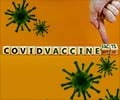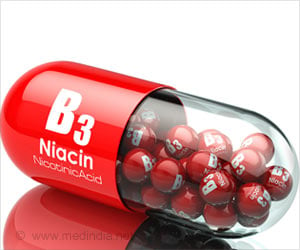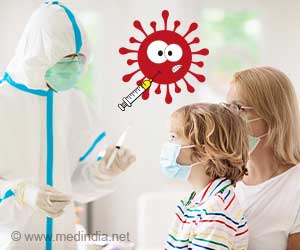A new study suggests how vaccine manufacturers can reformulate the vaccines to make them less likely to trigger allergic responses.

TOP INSIGHT
Allergies to mRNA-based COVID-19 vaccines are rare and manageable.
The mRNA-based COVID-19 vaccines provide immunity via small pieces of messenger RNA that encode molecular instructions for making proteins. Because the mRNA in the vaccines is fragile, it is encased in bubbles of fatty substances and sugars for stability.
When the vaccine is injected into someone’s arm, the mRNA can enter nearby muscle and immune cells, which then triggers an immune response that allows the person’s immune system to recognize and defend against the virus.
Estimated rates of severe vaccine-related allergic reactions that require hospitalization are 4.7 and 2.5 cases per million doses for the Pfizer and Moderna vaccines, respectively, according to the federal Vaccine Adverse Event Reporting System.
The research team also examined the medical records of healthcare workers who received 38,895 doses of mRNA-based COVID-19 vaccines at Stanford Medicine between Dec. 18, 2020, and Jan. 26, 2021. The vaccinations included 31,635 doses of the Pfizer vaccine and 7,260 doses of the Moderna vaccine.
Only 17 of the 22 recipients had reactions that met diagnostic criteria for an allergic reaction. Three recipients received epinephrine, usually given for stronger anaphylaxis. All 22 fully recovered.
Later, participants underwent skin-prick tests, in which a clinician injected small amounts of potential allergens such as lipids, sugars (polyethylene glycol or polysorbates), or entire vaccine into the skin.
None of the recipients reacted on skin-prick tests to the inert ingredients in the vaccines. Follow-up blood tests showed that the vaccine recipients did not have significant levels of IgE antibodies against the vaccine ingredients.
Since the skin tests did not explain the mechanism of recipients’ allergic reactions, the investigators proceeded to another type of diagnostic test.
Vaccine recipients provided blood samples for tests of allergic activation of immune cells known as basophils. The blood samples from 10 of the 11 participants showed a reaction to the inert ingredient polyethylene glycol (PEG), which is used in both the Pfizer and Moderna vaccines.
In addition, all 11 recipients had basophil activation in response to the whole mRNA vaccine when it was mixed with their basophils.
All 11 subjects had high levels of IgG antibodies against PEG in their blood; IgG antibodies help activate basophils under some conditions, and this finding suggests the individuals were likely sensitive to PEG before receiving their vaccines.
In addition, the data suggests that reactions to the COVID-19 vaccines were generally not the most severe form of allergic reaction.
Allergic reactions mediated by IgG and basophils can be managed with antihistamines, fluids, corticosteroids, and close observation, meaning that many individuals who have reacted to their first vaccine dose can safely receive a second dose under medical supervision.
Most reactions were to PEG rather than the vaccine’s active ingredients, so vaccine manufacturers can reformulate the vaccines with different stabilizers that are less likely to cause allergies.
Source-Medindia
 MEDINDIA
MEDINDIA




 Email
Email










